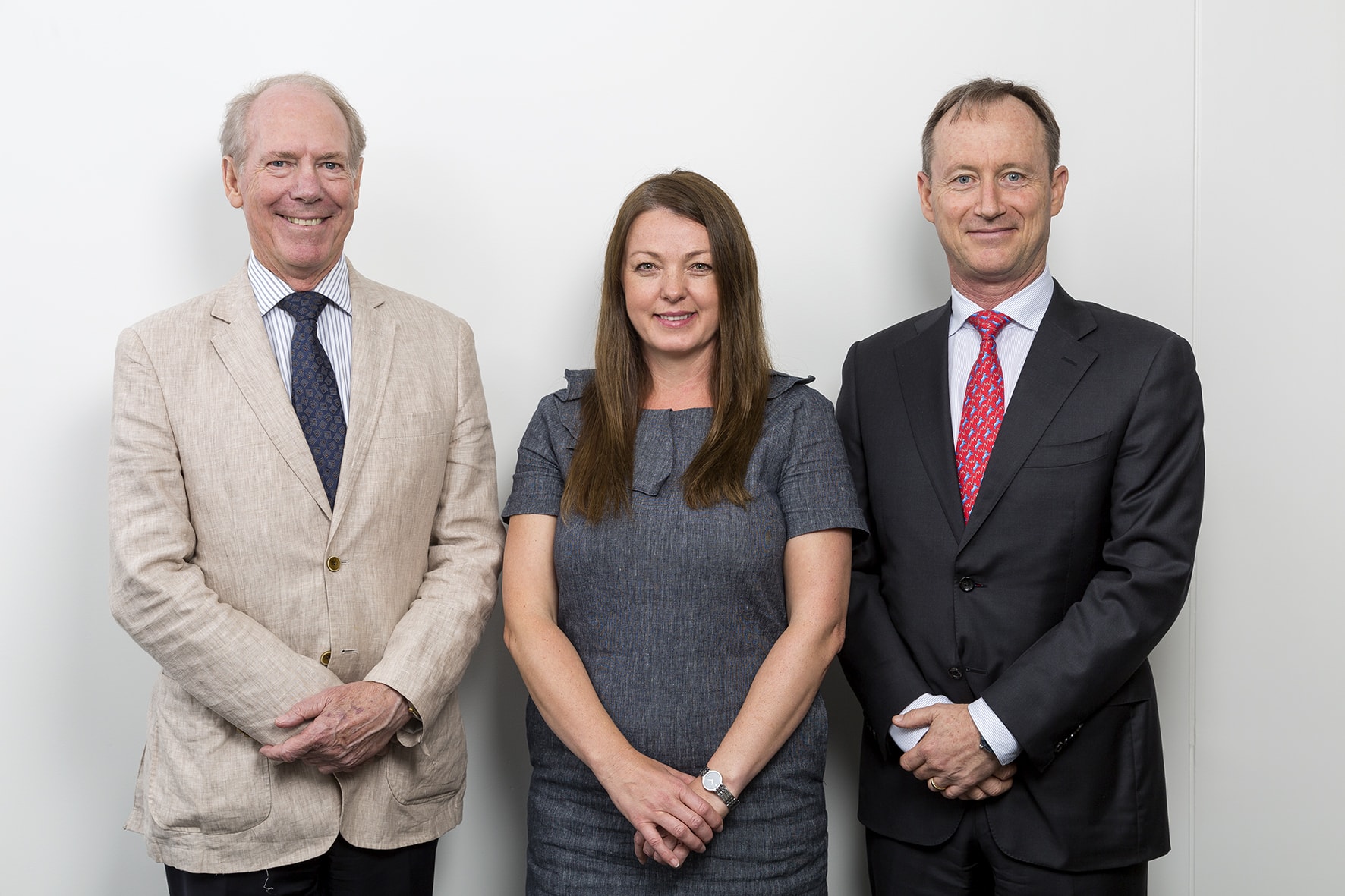
Grant recipient Prof Allan Kermode (pictured right) with Prof Bill Carroll (left) Dr Marzena Pedrini (centre). Image courtesy of the Perron Institute.
In August, it was announced that Professor Allan Kermode (pictured, inset) was one of the inaugural recipients of the $50,000 St John of God Foundation Seed Funding Grant. Professor Kermode, who has extensive experience in neurology and neurological research, as well as Multiple Sclerosis epidemiology and neuroimaging, will be using the funding to study employing neurofilament light chain measures for management of Multiple Sclerosis.
Multiple Sclerosis is a chronic, inflammatory disease that attacks the central nervous system (brain and spinal cord). Over 2.5 million people globally live with the potentially debilitating disease, which is also difficult to predict and currently cannot be prevented.
Neurofilament light chains are proteins released into the body following damage to the central nervous system, and by measuring these proteins we may be able to capture the extent of damage caused by Multiple Sclerosis.
Professor Kermode anticipates that employing neurofilament light chain measures has potential to improve patient care, as well as offering more effective diagnosis and treatment.
“We are very excited about the work we are doing with respect to the neurofilaments,” he said.
“The beauty is, that it is something we can do here in Western Australia that can immediately help inform our clinical decision making, and assessment of the disease.
“It’s very difficult to measure potential improvement in people and remyelination – this is one of our big unmet needs. These technologies are able to accelerate our assessment of response and progress.”
Professor Kermode also hopes that the research will be beneficial for the thousands of people living with neurological conditions worldwide.
“As a clinician, with each patient we see we can hopefully change their life, and help in some way. However, when one is doing research, with one finding or discovery, you can actually leverage the improvements for literally tens of thousands of patients,” he said.
Professor Kermode has reflected on the neurofilament study as an example of the progress that has been made in Multiple Sclerosis research.
“When I first began doing MS research, there were senior clinicians saying, ‘What's the point? There is nothing you can do,’” he said.
“Fast forward to now, and it’s not hyperbole to say that in those cases we catch early, we can reassure you that you will have a healthy, long life. I look forward to a time, and it feels almost palpably close, where we may effectively turn Multiple Sclerosis into something like Polio, where the next generation don’t know anyone who has ever had it.”
The neurofilament research, led by Professor Kermode, will take place in collaboration with researchers from the Perron Institute, a world-leading medical research institute based in Perth. The research team will include Professor William M Carroll, who is a consultant neurologist and eminent Multiple Sclerosis researcher at the institute, as well as Dr Marzena Fabis-Pedrini, who is a Senior Research Fellow in the area of Demyelinating Diseases.
Professor Kermode expressed his gratitude to the community of donors that have made funding for this vital research possible.
“We are delighted that St John of God Foundation have been able to support us and have seen the benefit. We are grateful for the donors’ support, and for them to be able to see it is being used effectively, and helping not just their own community but society as a whole,” he said.
“I think that everyone wins with this project.”
The Seed Funding Grant is one of two grants offered to caregivers this year, as part of a new donor-funded Research Grants program.
The grants program, launched earlier this year by St John of God Foundation in partnership with St John of God Subiaco Hospital, is designed to further support and grow St John of God Subiaco Hospital’s world class clinician-led research, with the ultimate goal of improving patient care, treatment and health care outcomes through translatable research.
“Disappointingly, Western Australia is under-represented in National Health and Medical Research Council (NHMRC) grants compared with the national average. We have partnered with St John of God Subiaco Hospital, our leading research hospital, to do something about this issue,” said St John of God Foundation CEO, Bianca Pietralla.
“With the support of our WA philanthropic community, we focus on enabling research that has the greatest potential to improve clinical outcomes and quality of life for patients and their families, and influence global health care practices, which Professor Kermode’s meaningful research project has the potential to do.”
Our congratulations to Professor Kermode and his research team on their success in receiving this grant. We look forward to following the progress of this important work and sharing updates with our community.

Grant recipient Prof Allan Kermode (pictured right) with Prof Bill Carroll (left) Dr Marzena Pedrini (centre). Image courtesy of the Perron Institute.